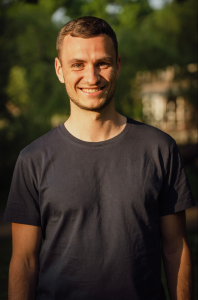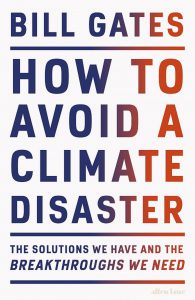Imagine finding a job that seamlessly blends your love for sports with a profound sense of purpose – a career that transcends the boundaries of conventional employment to become a fulfilling journey of both personal passion for sports and positive impact. Well… this job exists and can be found on a platform called Play for the Planet, whose mission is to connect talented individuals with Sports companies who share common values of Sustainability and Social responsibility.
As we dived into Play for the Planet, we had the chance to exchange with its founder, Robin Parmelin, a great sports fan and advocate for positive change in the world.
If you want to get to know Robin and learn about what drove him to create Play for the Planet, read our interview below.
_____________
 AG : Hi Robin, could you tell us a little more about yourself?
AG : Hi Robin, could you tell us a little more about yourself?
RP : I’ve always been a great sports fan. As a youngster, I was constantly swallowing up all the sports content I could get my hands on, so much so that my father used to call me “the encyclopedia of sport” because I was able to give him statistics on so many different disciplines. Being of Swiss origin, I naturally started out with the 3 national sports: Football, Tennis and Skiing. Soccer is the sport in which I’ve been most involved, going so far as to take part in the region’s youth academies, even becoming captain of the Under-16s (U16s) at Lausanne-Sport, the biggest club in my region.
Since returning to a more modest level, I’ve gradually discovered a passion for other sports that are as diverse as they are similar in what they give off, such as basketball, Formula 1, cycling, American soccer and, most recently, running. I’m passionate about sport in general because of the emotions it generates, its ability to push back the limits of what’s possible and its unpredictable nature.
AG : When did environmental sustainability became an important part of your life?
RP : My connection to sustainability didn’t become obvious until much later. I was born into a family very close to nature, thanks in particular to my father, winemaker at Domaine la Capitaine, who was one of the pioneers of organic viticulture in Switzerland 30 years ago. Nevertheless, it would be a lie to say that I’ve always been sensitive to climate change. It has to be said that I was lucky enough to travel a lot when I was young, and it wasn’t at the top of my priorities.
 However, the real turning point came when I read the book that changed my career, and probably my life as well: Bill Gates’ “How to avoid a climate disaster”. This book both shocked me and opened my eyes to the need to act without further delay. It also made me realize that I could have a far greater impact if I became a person who influenced others, rather than simply taking action in my own life. Coming from a relatively comfortable background, I felt a sort of duty to use my time and my life to leave a positive mark on our planet. If I, living in a country as stable and prosperous as Switzerland, aware of the issues and with sufficient financial resources, don’t help combat global warming, who will?
However, the real turning point came when I read the book that changed my career, and probably my life as well: Bill Gates’ “How to avoid a climate disaster”. This book both shocked me and opened my eyes to the need to act without further delay. It also made me realize that I could have a far greater impact if I became a person who influenced others, rather than simply taking action in my own life. Coming from a relatively comfortable background, I felt a sort of duty to use my time and my life to leave a positive mark on our planet. If I, living in a country as stable and prosperous as Switzerland, aware of the issues and with sufficient financial resources, don’t help combat global warming, who will?
This realization, which came in the course of 2020, really marked a turning point in my career and guided all my future decisions, both professionally and personally. I changed my own lifestyle, in terms of food and travel, but I also wanted to help others to do the same and create something that could have an impact on a much wider scale.
AG : How did you get into working in sports? And more recently the intersection of sport and sustainability?
RP : After completing my Bachelor’s degree in management at HEC Lausanne in 2021, and working for Nestlé for a year, I decided to go back to university, to work in the sector that fascinated me most: sport. Seeing my parents sometimes work more than 70 hours a week without complaining, I’ve been trying for a long time to find a profession that will fascinate me as much as wine fascinates them. As described above, sport was the obvious choice, as I feel I can devote hours to it without realizing it, whether it’s practicing, watching, analyzing or reading. So I enrolled in a “Sport Management” program in Munich, which I’m currently finishing. During this time, I was lucky enough to work part-time for a German company, ClimatePartner, which enabled me to expand my knowledge on the subject of sustainability and climate change. So it was natural for me to wonder whether there might be a way of combining the two, so as to combine the useful (sustainability) with the enjoyable (sport). Unfortunately, I came face to face with the reality of the industry: sport has other priorities than sustainability, and finding a job in it seems almost impossible, or at least at first sight. That’s when I came up with the idea for Play for the Planet. During my years at HEC Lausanne, I’d already had the chance to launch several small online businesses, which made me realize that it’s now possible for anyone to bring an idea to life, unless they put all their energy into it. So that’s what I decided to do
AG : Can you tell us more about Play for the Planet and its mission?
RP : Play for the Planet is the slightly cliché story of the young student who creates a solution to a problem he himself has encountered, imagining that he’s probably not the only one facing it. Because of my desire to help sport become a more sustainable industry, and to put its enormous influence on society to good use, I desperately looked for jobs that would enable me to start my career. Seeing how difficult it was to find jobs on the various platforms available, I created a rather sophisticated alert system to find all the positions available: LinkedIn Alerts, Specialized Platforms, Google Alerts, you name it. After several weeks of research, and after discussing it with my friends and colleagues, many of them told me that they would love to have a platform where they could find all this without having to spend hours on it. Having already created several websites in the past, I decided to take action and create the first version of Play for the Planet in April 2023. At first, it was just a kind of intermediary that brought together the various job offers available, redirecting users to the various web pages. There was no monetization and the aim was simply to help people, and to see if there were really people for whom it would be useful. Barely 6 months later, it’s fair to say that the scope of my idea has exceeded all my expectations. We now have almost 500 members who log on regularly, and this number has been growing exponentially over the past few weeks. Our mission is therefore twofold: on the one hand, to help sports industry actors find the best talent to improve their sustainability practices, and on the other, to make it easier for the many individuals seeking a career in sports sustainability.
AG: What are the latest exciting updates?
RP : Due to the sudden growth of Play for the Planet, we’ve already had to create version 2.0 of our site, with several new features and functions. Instead of simply retrieving job offers available on the web, we’re now giving companies the opportunity to post their offers directly themselves. What’s more, our ambition is to create the largest community of talent in the field of sports sustainability. To achieve this, we want to constantly improve our users’ experience on the platform, which is why we are now offering our members the chance to receive personalized job offers if they so choose. The process is simple: all you have to do is create a detailed profile, including your experience, education and training, and upload your CV. If you wish, we can then allow companies interested in your profile to contact you to offer you a job, without you even having to apply on our platform. All this is only possible thanks to the extreme uniqueness of our platform.
“Our ambition is to create the largest community of talent in the field of sports sustainability”
AG : What differentiates Play for the Planet from other job platforms?
AG : There are hundreds of similar sites, but none of them address the niche of sustainability in sport, which makes our member base extremely engaged and interesting for a company wishing to find a suitable profile.
AG : Can you tell us more about your plans for 2024 and beyond?
RP : Mission number 1 for the coming year is to continue to grow our community of members who are passionate about the sustainability of sport. It’s only by guaranteeing high-quality service to our members and focusing our efforts on them that Play for the Planet will be able to develop. The platform is still 100% free for all our members, because we want to bring them as much value as possible, and maximize its reach. However, we may introduce a range of premium services, such as talent placement and CV reviews. We’ll also be offering new services to companies looking for more specific, one-to-one help with their personnel search, by acting as “headhunters” for those who’d like us to do the search and pre-selection process for them. Considering our current growth, we could reach 1,000 members in a few months, and 2,000 by the end of 2024, but we won’t do so at the expense of quality service.
One project that is particularly important to us is helping people who share our passion for developing the sport in a more sustainable way to find a job. We often talk about finding a profession that we’re passionate about, so that we can have a meaningful career that we’ll be proud of once it’s over. Unfortunately, it’s not always easy to be the one selected to get the job you’ve always dreamed of. Play for the Planet will soon be developing an online training course with a very clear aim: to help you find a job in the sustainability of sport. This training course will introduce and deepen your understanding of eco-responsibility concepts with the help of the industry’s leading experts, and fine-tune your profile to help you find the job of your dreams. This training will give you 3 advantages: training, visibility on our job platform, and networking with industry professionals.
AG : What would you recommend to someone new to sustainability but want to make a positive impact in the sports’s world?
RP : I think it’s important not to be afraid of not being legitimate. The “impostor syndrome”, which consists of doubting one’s own ability to express oneself or contribute on a given subject, is unfortunately all too common. Yet I can assure you that many sports clubs and associations are so far behind in their sustainable development strategy that the simple willingness to take action and change the status quo can be enough to find a job. Another piece of advice I’d give is to understand that sustainability is a broad field, and that you don’t necessarily need to become a “CSR Director” or “Sustainability Manager” to help a company make the transition to a more sustainable model. Whether you’re in marketing, logistics or sales, you can make an impact in your department without your official title mentioning the terms sustainability or CSR. Sustainability should be part of everyone’s job description, because it affects the company as a whole, and everyone needs to be sensitive to it if it is to be a real part of the overall strategy.
AG : What are your recommendations to prepare best for a job in sports sustainability.
RP : For me, it goes without saying that training in the subject is the first thing to do.These days, you can find hundreds of resources online, most of them free, to develop your knowledge in a new field, especially if you’re starting from scratch. Even for a subject like sports sustainability, which seems relatively specific, I’ve discovered several useful resources, whether through online training, videos or even reports. Such is the backwardness and sometimes ignorance of some sports companies on the subject that if you start training today, you’ll be ahead of 99% of your colleagues very soon. Be curious, follow specialized media, websites or newsletters that keep you up to date with the latest trends in the sector, and you’ll quickly become an expert in the field. Then it’s important to remain humble and accept that the subject is so vast that you’ll never reach the end of your discoveries, and that it’s imperative to learn from those more experienced than ourselves, while bringing our own innovative touch to the table. In short: get trained and go for it without fear.
AG : Is the future of sports « green »?
RP : I wish I could answer a resounding “yes” to this question, but unfortunately recent events prevent me from doing so. The inordinate growth of the industry is such that money unfortunately remains the number 1 objective for most players in the sector. Nevertheless, I’m convinced that it’s up to all of us, especially enthusiasts like myself, to get the sport moving in the right direction. There are climate scandals in every industry, and being fatalistic isn’t going to move anything forward. Thousands of people are working behind the scenes every day to change things, and it’s up to you to join them.
_________________
It is evident that Play for the Planet is not just a platform for jobs; it is a catalyst for positive change within the sports industry. By fostering a community that values environmental responsibility and social impact, Play for the Planet is shaping the future of sports, making it more sustainable and socially conscious.
The commitment of Play for the Planet to connect individuals with opportunities that align with their passion for sports and sustainability is commendable. It is inspiring to see how Play for the Planet is creating a space where professionals can contribute to meaningful initiatives, addressing critical issues like climate change and social inequality.
We are very much looking forward to follow the development of the platform
Make sure to stay tuned with Play for the Planet : www.play4theplanet.org and connect with Robin Parmelin on Linkedin

